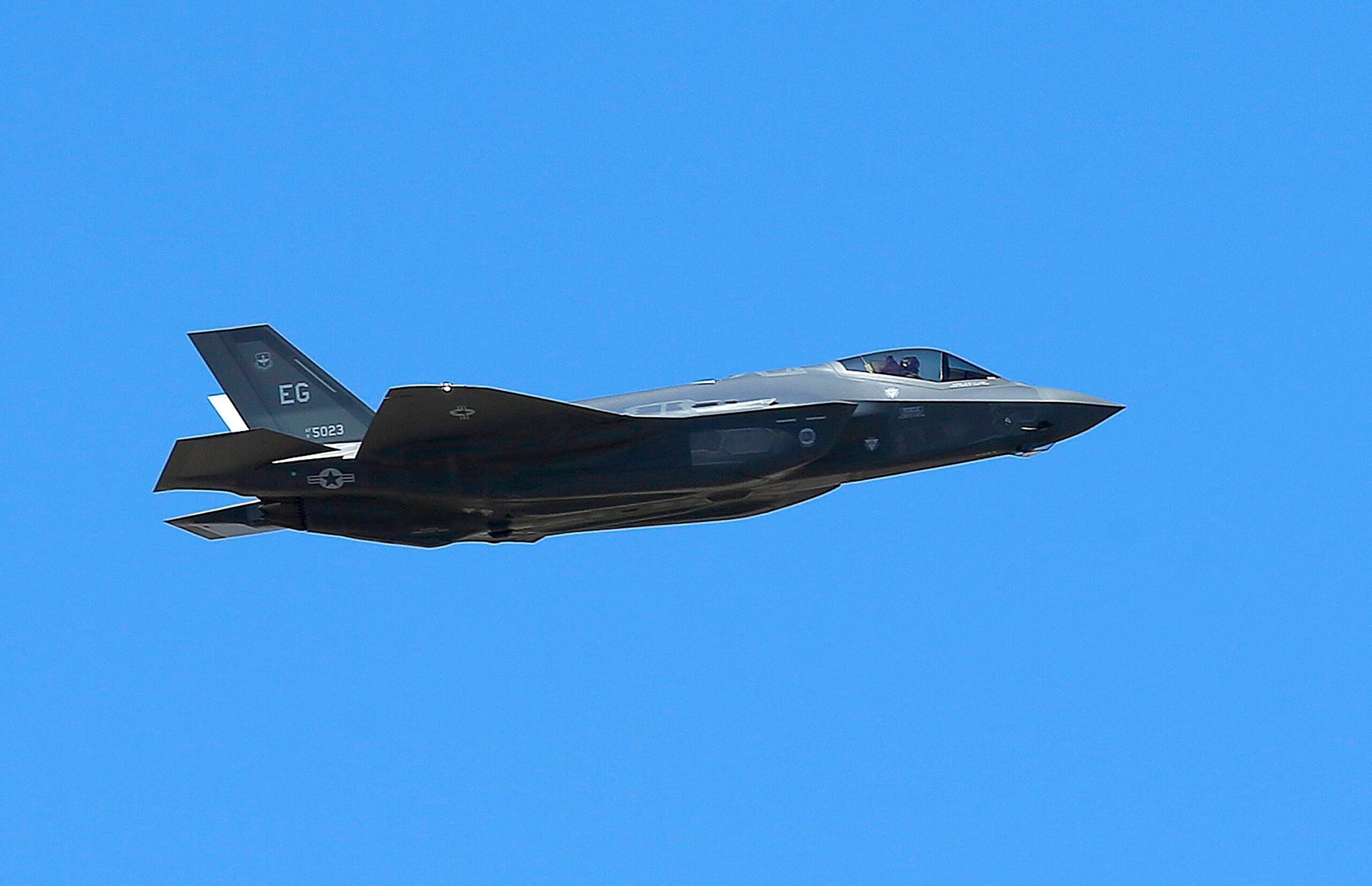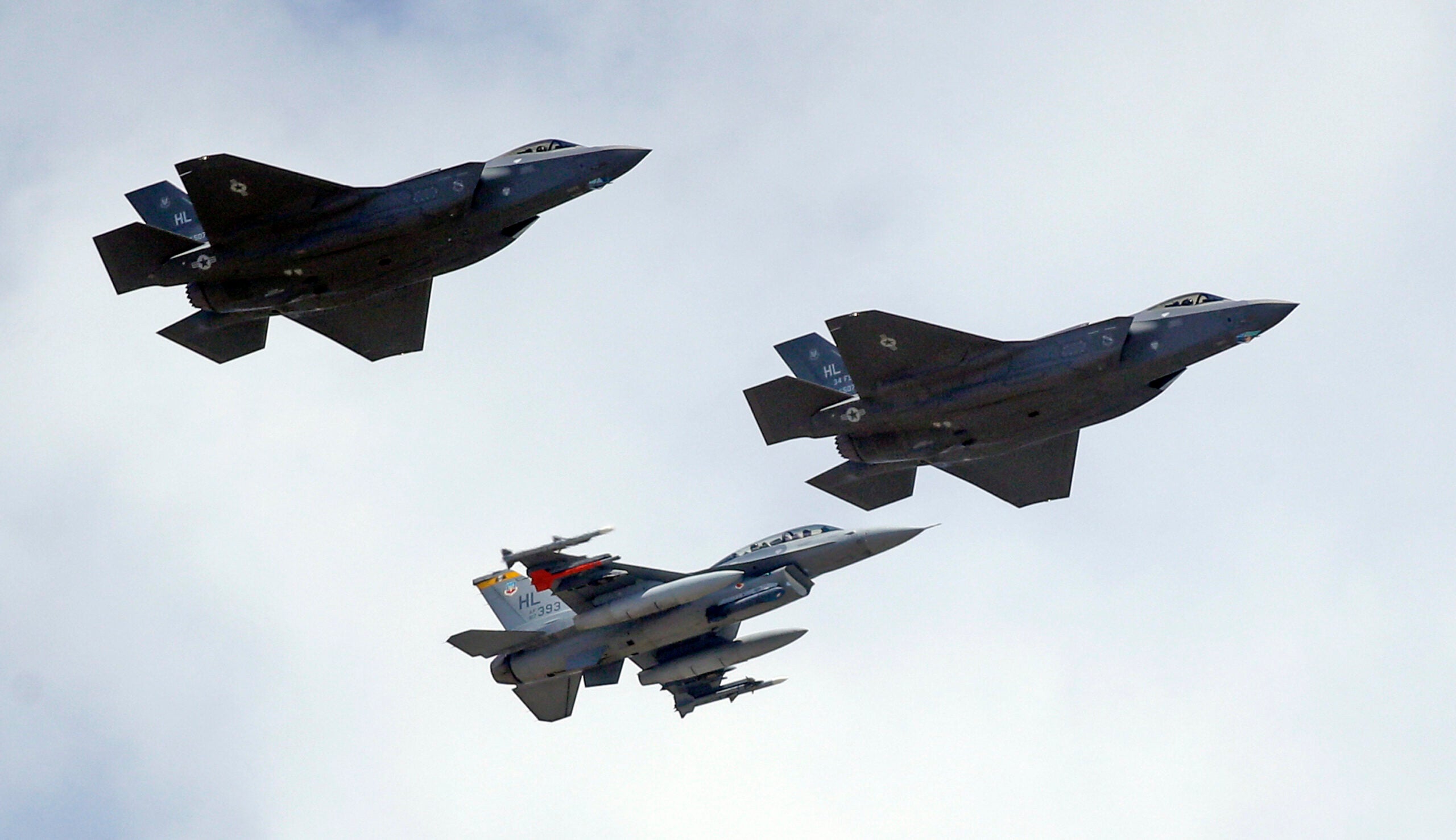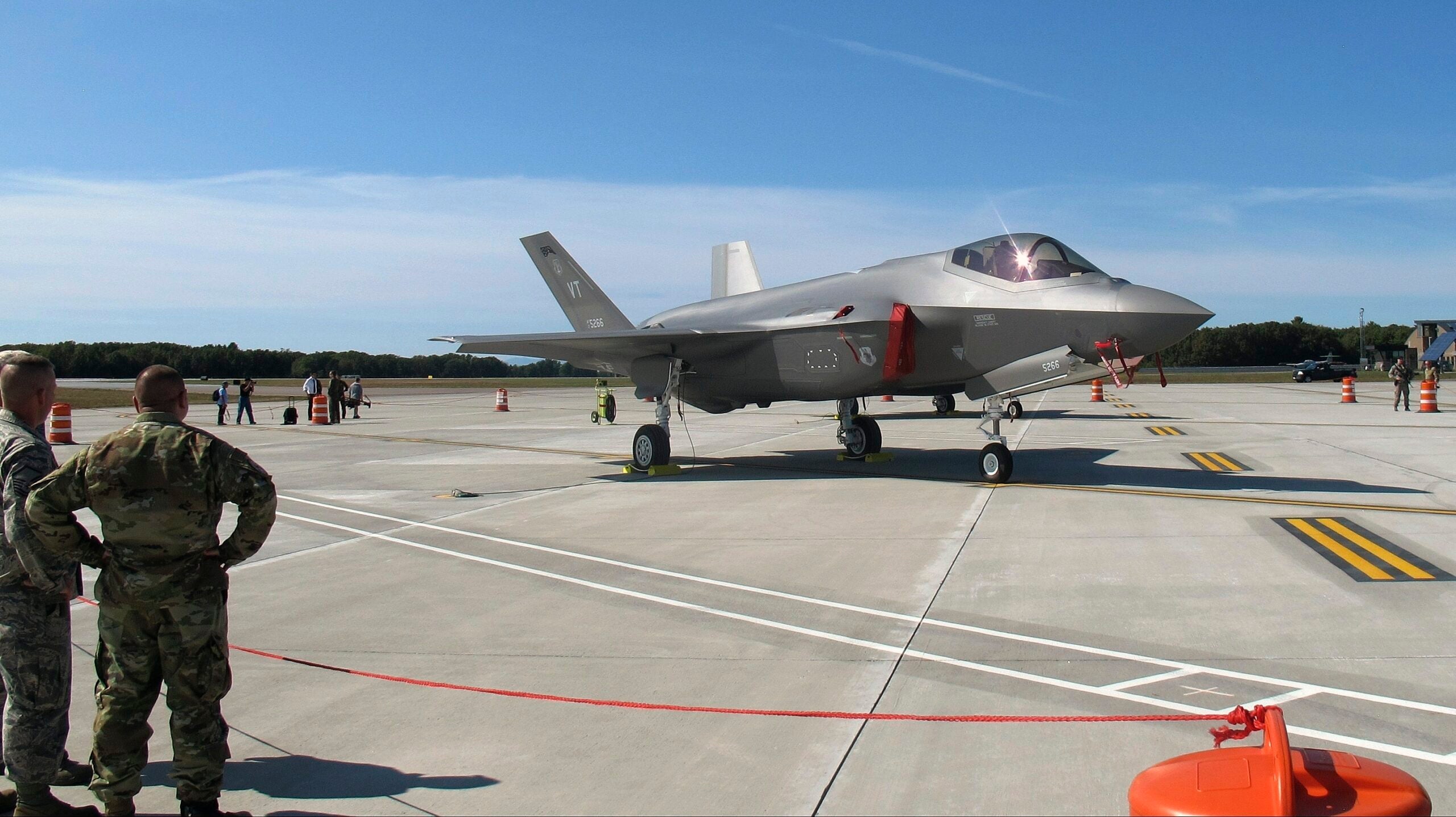Residents in northeast Madison are frustrated after being denied funding to offset fighter jet noise from a recent round of federal grants.
The Wisconsin Department of Military Affairs was seeking more than $18 million from the U.S. Department of Defense to help residents mitigate noise from F-35 jets at the Truax Field Air National Guard base.
That money would have helped dampen the noise at roughly 160 nearby homes by allowing people to add insulation as well as better windows and HVAC systems, according to a letter sent by U.S. Rep. Mark Pocan, D-Madison, to a Department of Defense, or DOD, official earlier this month.
News with a little more humanity
WPR’s “Wisconsin Today” newsletter keeps you connected to the state you love without feeling overwhelmed. No paywall. No agenda. No corporate filter.
Les Hoffman, who’s lived for four decades in the Cherokee Park neighborhood near Truax, said he’s “extremely disappointed and not surprised” at the latest funding denial.
Fighter pilots have been training at Truax for decades, but the F-35s are a more recent arrival. They started taking off from Truax in April of 2023, and Hoffman says they’re much more disruptive than the F-16 jets that preceded them.
“It’s bloody noisy,” he said. “Noisier by far.”
Hoffman is among the residents who’ve been raising concerns about the impact of F-35 noise on human health and property values.
Meanwhile, the Dane County Regional Airport is the process of finalizing updates to its noise plan in response to the F-35s. According to a draft version that plan, 1,250 homes near Truax will be considered “incompatible” for residential use by 2027 because of an average daily noise level above 65 decibels.
Steve Klafka, an environmental engineer who also serves as an organizer with Safe Skies Clean Water Wisconsin, says those averages don’t tell the full story. Safe Skies Clean Water fought unsuccessfully to try and stop the F-35s from coming to Madison.
“It’s a daily average based on annual daily flights,” Klafka said. “So it’s an average of an average. It doesn’t reflect the ear-splitting noise that you actually hear when an F-35 jet goes over.”
Safe Skies Clean Water has a network of noise-monitoring machines at homes near Truax, and Klafka says the group has recorded decibel readings as high as 120 at a home in the F-35 flight path. That’s as loud as a rock concert, and can be painful and dangerous to the ears.
Klafka used to live on the east side near the F-35 flight path, but he said he recently moved to the city’s west side in large part because of the jet noise.”
For more than 40 years, Berman has considered it a privilege to live near Truax and the Dane County Regional Airport.
“I’m telling you, every piece of air traffic that has ever gone past my field, you know, illuminated against a beautiful sunset — oh, it’s just beautiful,” he said.
But he says the F-35 noise has become nearly unbearable.
“The vibrations, it just passes through your body,” he said. “It passes through your stomach. You can really physically feel it.”
It’s not clear why homes in Madison didn’t receive funding in the latest grant round. The DOD did not provide in response to the application submitted last fall, Wisconsin Department of Military Affairs spokesperson Leslie Westmont said.
But Westmont said the agency will continue to pursue other funding opportunities for noise reduction near Truax. That includes submitting an application during a second round of funding that’s now open through the Community Noise Mitigation Program.
In his letter this month, Pocan expressed disappointment at the recent funding denial. He urged the director of the DOD’s Office of Local Defense Community Cooperation to visit Madison to listen to the din from F-35s and explain the decision personally to residents.
“Since the decision to place F-35 fighter jets at Truax Field in 2020, my office has repeatedly been in touch with the Department of Defense to express my concerns about what impact the noise from these jets could have on local residents, their homes, and local businesses,” said Pocan, whose district includes Greater Madison. “In the years since, residents have reported consistent and significant concerns with the noise levels to my office, along with fears that prolonged exposure could lead to property damage or negative health impacts.”
Before the F-35s arrived in Madison, U.S. Senators Tammy Baldwin and Ron Johnson were part of a bipartisan Congressional delegation that supported bringing the F-35s to Truax. At the time, Pocan raised concerns about noise levels and other effects from the new jets.
In 2020, the Madison Common Council approved a nonbinding resolution asking the U.S. Air Force not to bring the new jets.
A spokesperson for Pocan’s office said the congressman will advocate for additional noise mitigation funding at Truax whenever possible, including in upcoming DOD rounds.
Editor’s note: This story has been updated to correct U.S. Rep. Mark Pocan’s position on the F-35 fighter jets before they arrived in Madison.
Wisconsin Public Radio, © Copyright 2026, Board of Regents of the University of Wisconsin System and Wisconsin Educational Communications Board.




